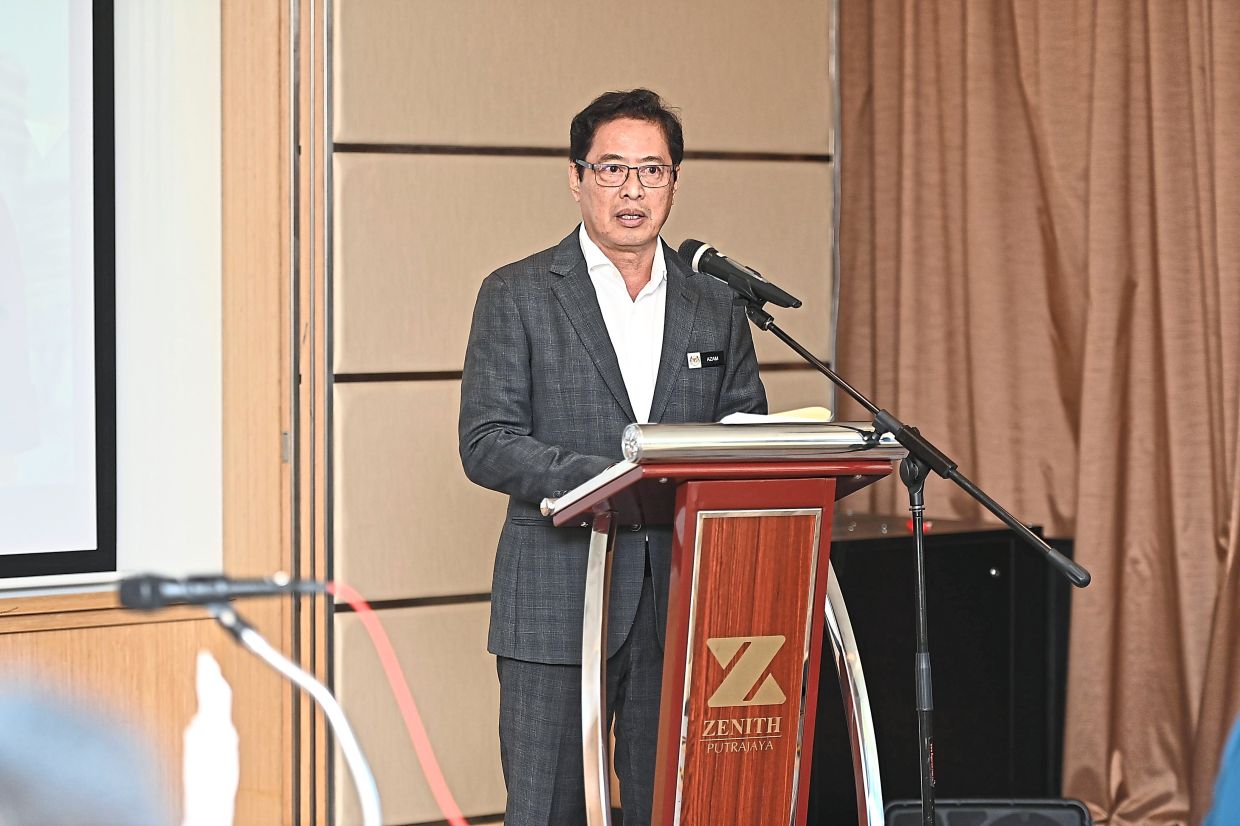PUTRAJAYA: Graft busters are pushing for the Deferred Prosecution Agreement (DPA) to be introduced as soon as possible to boost the fight against corruption and recovery of assets in high-profile cases.
Malaysian Anti-Corruption Commission (MACC) chief commissioner Tan Sri Azam Baki (pic)said the Special Cabinet Committee on National Governance, chaired by Prime Minister Datuk Seri Anwar Ibrahim, is expected to meet in June to discuss the matter.
“We hope it will be introduced as the focus of the DPA is on the recovery of assets.
“The DPA has been used in countries such as the United States and the United Kingdom,” he said during the MACC’s Executive Talk with the media.
Azam said the DPA will be used in cases involving grand corruption and corporate liabilities involving large amounts of funds.
“We will use it for high profile cases involving large amounts.
“For example, an accused in a grand corruption case involving RM177mil in funds. The DPA will be used to seize the funds so that it goes back to the government’s coffers,” he added.
The MACC has proposed that cases where DPA will be used must have justification to do so.
“We also proposed that when the DPA is to be used in certain cases, it must have the consensus of the deputy public prosecutor, who will review the justification for DPA to be used.
“We will definitely not use it for small-scale cases,” he said.
Azam said he expects the proposed amendment to the MACC Act 2009, which will include the DPA mechanism, to be introduced in Parliament by the second quarter of next year.
“We hope it will be eventually passed and enforced,” he added.
Azam has been proposing the DPA for some time, arguing that it will allow prosecutors to achieve outcomes more efficiently without lengthy and costly trials, and that it will help fight economic and financial crimes.
It will also ensure faster recovery of assets and funds and better compliance by persons or entities to prevent future violations.
On another matter, Azam said it is getting harder for authorities to detect transactions of illicit funds, as criminal entities are resorting to e-wallet platforms and cryptocurrencies.
“If they (criminal entities) use the usual bank transactions, we will be able to track them eventually.
“However, they are using these new transaction mechanisms. Some are also using money changers to transfer ill-gotten funds as well,” he added.
Azam believes illicit funds from overseas that have flowed through Malaysia total about RM40bil.
“These illicit funds are derived from various criminal activities, including drug trafficking, smuggling and fraud.
“If we can recover at least RM10bil, it will benefit the country, but it requires efforts between law enforcement agencies and other government bodies,” he added.
One of the best examples of repatriation of overseas assets and funds is the 1Malaysia Development Bhd case.
“We had good and lengthy discussions with international authorities that enabled us to repatriate funds and assets belonging to the country.”
